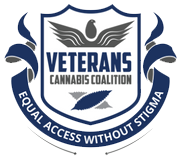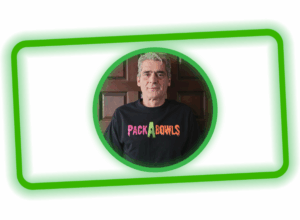 The VA will Continue to Fail our Vets on Suicide Prevention, This Past Week Proved It
The VA will Continue to Fail our Vets on Suicide Prevention, This Past Week Proved It
With our nation losing an average of over 20 of our veterans every day to suicide, every week is a tough week for the vet community and those with empathy and respect for it. But the past seven days have been particularly hard to endure without coming completely unglued about the powers that be in Washington D.C.

We’ll start one week ago today, on June 21st when a reliable stalwart of cannabis reform, Rep. Earl Blumenauer (D-OR) was forced to withdraw a sensible piece of legislation that would have allowed doctors at the Department of Veterans Affairs (VA) to recommend medical marijuana to their patients who reside in states where it is legal. Why did he withdraw the amendment for the 2nd time in 3 years?
Stronger than usual opposition from the VA itself shelved Blumenauer’s bill with the agency claiming that it could not guarantee that those docs who talk pot would not be rung up on some phantom federal charges based on the fact that cannabis – regardless of state laws – is still a Schedule I drug prohibited by the highest ranks of our national government.
The fact is, federal courts have already ruled on this, setting precedent that doctors who “recommend” medical marijuana to their patients are to be protected under the First Amendment.
In 2016, the last time that Rep. Blumenauer tried to pass such an amendment, the effort made it through both the House and the Senate with bipartisan support before being gutted by Republican leadership. The Speaker of the House at that time was none other than John Boehner, who has since retired from public service to become a hypocritical cannabis carpetbagging bluesuit.
Unfortunately, in 2019, the VA got its way and the latest iteration of Blumenauer’s bill appears to have gone up in smoke once again.

Our friends at Veterans Cannabis Coalition tell us that on that same day – June 21st – the New York Times reported that the VA had “just approved the use of Spravato (esketamine) a nasal spray intended for the treatment of depression. Spravato is made by Jannsen, a unit of Johnson & Johnson, a company currently being sued over the presence of #asbestos in its baby powder and for its role in inappropriately marketing #opioid drugs. Esketamine is similar to ketamine, and is a strong dissociative drug that carries increased risk of suicidal thoughts and actions. VA approval comes ‘days after President Trump offered to negotiate a deal between the drug maker and the agency.’”
Even the NYT headline reads ominously. . .
Veterans Agency to Offer New Depression Drug, Despite Cost and Safety Concerns
On Monday of this week, just three days, and dozens more potentially avoidable suicides, after the VA blindsided Blumenauer and shot down his latest attempt to give our vets the same rights as their friends, family, and neighbors, the agency announced that it “is seeking input on ways to increase knowledge about factors influencing suicidal behaviors and ways to prevent suicide; inform the development of a robust and forward-looking research agenda; coordinate relevant research efforts across the Nation; and measure progress on these efforts.”
You know, as long as you don’t want to include cannabis in that input. Clearly the VA has made their position known on cannabis reform.
The following day, on June 25th, POLITICO reported that the VA has been relying on a questionable computer algorithm for several years now that allegedly uses artificial intelligence to predict which veterans are most at risk for self-harm or suicide and are in need of mental health treatment.
Again, we check in with VCC for their take. “The article, like so many others, focuses almost exclusively on the risks of opioids, ignoring the widespread polysubstance use among veterans and especially the role of non-opioid pharmaceuticals – like benzodiazepines and antidepressants – in suicide.”
This same crucial distinction is lost on many of our nation’s lawmakers and those in positions of power at these top level agencies, as is the fact that in many cases cannabis can safely replace most, if not all, of these dangerous synthetic drug cocktails currently being pushed by VA docs.
Look, from AI algorithms to the human touch, we want all hands on deck and all available tools accessible for this battle to quell veteran suicides, but that means ALL tools – including cannabis.
VCC sums it up best from their veterans’ perspective, saying, “VA refuses to invest in the study of cannabis or cannabinoids and opposes any Congressional action that mandates they do so. Department executives have regularly misled Congress and veterans about the extent of malpractice and negligence within the agency, and in 15 years have failed to make a dent in the veteran suicide rate. From Blue Water Navy veterans struggling decades after the fact to get recognition of their toxic exposure, to veterans put on secret waitlists and being denied proper care until they die, to forcefully tapering and cutting veterans off medications and providing no effective alternatives, forcing them on to the street – there is a rot at the core of the system.
Beyond legalization, we face a healthcare system that is indifferent at best, and hostile at worst, to the needs of actual people. Cannabis offers a way for many of us to start to retake control of our health from those who treat us like a profitable inconvenience. That is why we continue to work to end cannabis prohibition and research, reform, restore – because there are millions of lives on the line.”
Those lives matter
The VA shamelessly reports that risk for suicide is 22 percent higher among veterans, yet the inevitably futile resistance to cannabis reform within its own ranks fuels that horrible statistic.
Sharing in our frustration, Rep. Blumenauer made one final statement before pulling his bill last Friday, saying for the record, “I have been working in this Congress to extend [medical cannabis access] to our veterans who, if anything, need medical marijuana more than any other category of our citizens. We lost 7,000 people to the wars in Afghanistan and Iraq, but we’ve lost 100,000 of those veterans to suicides and opioid overdoses. The VA, I’m afraid, has not been as helpful as it should be.”
Bringing our week to a close. . . yesterday was National PTSD Awareness Day. Post Traumatic Stress Disorder afflicts millions of our nation’s veterans on a scale ranging from mildly annoying to mentally debilitating and undoubtedly plays a role in too many of these suicides. June 27th is one day set aside to recognize this condition that affects not only our veterans, but so many Americans, and a day to “check in” on a friend or family member who may be dealing with PTSD. But our call to action today is to ask that you recognize that PTSD, depression, and substance abuse are very real everyday battles that our vets must face and that it’s always a good time to check up on a buddy.
===
Veterans who are in crisis or having thoughts of suicide, and those who know a Veteran in crisis, can call the Veterans Crisis Line for confidential support 24 hours a day, seven days a week, 365 days a year. Call 800-273-8255 and press 1, chat online at VeteransCrisisLine.net/Chat, or text to 838255.
Keep updated on all the latest news and updates in the Cannabis industry here at Beard Bros Pharms by signing for our Friday Sesh Newsletter here. Always Dank and Never Spam!

















